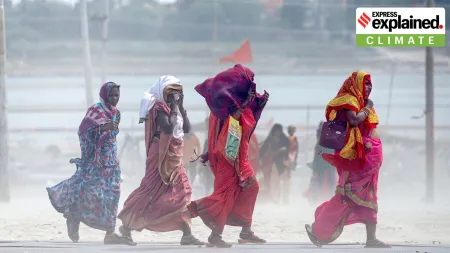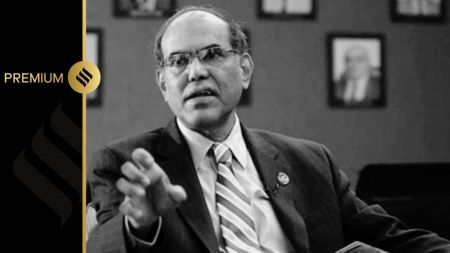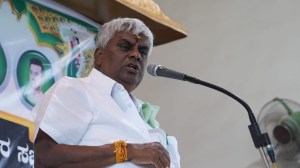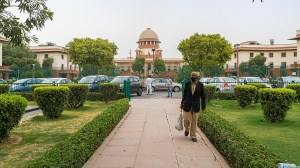- India
- International
Explained: France’s problem with the burqa
France was the first country in Western Europe to impose a ban on face-covering Islamic veils in 2010. Among the different types of Islamic veils, the burqa is the most conservative, covering the entire face and body. A mesh screen in front of the eyes allows the wearer to see.
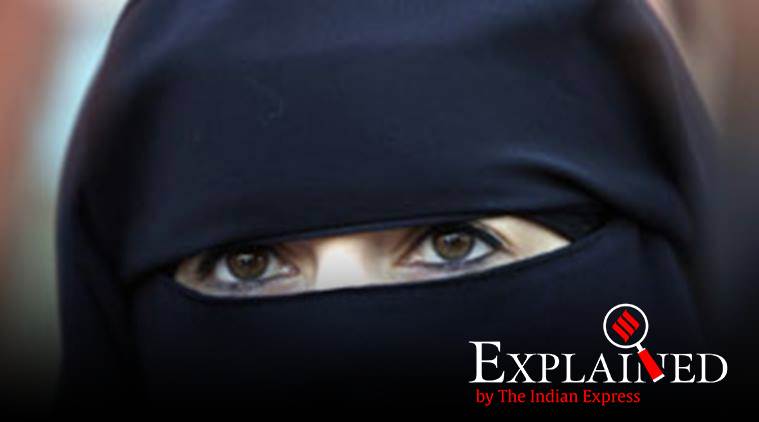 After France, Belgium was the next country to ban full-face veils in 2011. A woman wearing a veil can be liable to pay fines to the tune of 1,378 euros, and can be jailed for up to seven days.
After France, Belgium was the next country to ban full-face veils in 2011. A woman wearing a veil can be liable to pay fines to the tune of 1,378 euros, and can be jailed for up to seven days.
In France, a mother who was accompanying a child on a school trip was told by a politician, Julien Odoul, in the country’s central city of Dijon to uncover herself, The New York Times reported on Saturday.
The woman was wearing a hijab, which is a type of a headscarf worn by Muslim women. On October 11, Odoul tweeted, “In the name of our republican and secular principles, I asked @MarieGuiteDufay to remove the Islamic veil from a school counselor present in the Chamber. After the assassination of our 4 policemen, we can not tolerate this communitarian provocation”.
Odoul was quoted as saying in the report, “Madame has ample time to wear her veil at home, on the street, but not here, not today,” citing France’s values of secularism and laïcité.
Significantly, on September 25, The Guardian reported that the French education minister Jean-Michel Blanquer criticised the country’s largest association of parents when they used a photograph of a mother wearing a headscarf on one of their pamphlets, saying, “Yes I go on school trips, so what? Secularism is about welcoming all parents without exception.” He added that he wanted to avoid having mothers in hijab from volunteering on school trips.
And in 2018, Boris Johnson, who is now the Prime Minister of Britain, likened women who wear the full body veil to “letter boxes” and “bank robbers” in a column he wrote for the Daily Telegraph.

France was the first country in Western Europe to impose a ban on face-covering Islamic veils in 2010. Among the different types of Islamic veils, the burqa is the most conservative, covering the entire face and body. A mesh screen in front of the eyes allows the wearer to see.
Background
Before the Act was enforced, in 2004, France had banned wearing headscarves and “conspicuous” religious symbols in French state schools. The forbidden items included turbans, skullcaps, and crucifixes. Before passing this law, the debate about it had been ongoing for over two decades.
One of the central reasons was the perception of the French people to regard headscarves worn by Muslims as a sign of oppression faced by women, which in turn is believed to be an embodiment against secularism, an ideal highly regarded in France, because of its essential links with the French Revolution.
According to the definition of secularism given by the French government, “Secularism is based on three principles and values: the freedom of conscience and the freedom to manifest one’s convictions within the limits of respect for public order, the separation of public institutions and religious organizations, and the equality of all before the law. whatever their beliefs or beliefs.”
Furthermore, secularism “…guarantees the free exercise of cults and freedom of religion, but also freedom from religion: no one can be compelled to respect religious dogmas or prescriptions.”
Infact, France is so committed to the principle that the government has various initiatives to “train” people to know more about it. Some of these include “face to face training” on secularism that aims to familiarise the citizens with the principle in a way that they can apply it in everyday professional situations.
Through its Ministry of Interior and the Observatory of Secularism, it has 21 university degrees that focus on teachings about religion in France, and secularism. December 9 is observed as National Secularity Day in the country.
Burqa legislation in France
The bill is meant to prohibit the concealment of the face in public spaces. The definition of public spaces includes public roads, places open to the public, or on government service.
In the French Senate, the bill to make it illegal for people to cover their face in public was passed with a vote of 246 to 1 in September 2010 with 100 abstentions, and by a vote of 335 to 1 in the National Assembly. Essentially, the law makes it illegal to wear garments such as the burqa and niqab, veils that cover one’s face in public, except when worshipping in a religious place or travelling as a passenger in a car.
Women who do not comply with the law are liable to pay fines to the tune of 150 euros. Men who force their wives to wear a burqa could be liable to serve a jail term of one year, and to pay fines worth 30,000 euros. In the event that a minor is coerced, the fine increases to 60,000 euros, and the jail term to two years. This law is applicable to tourists as well; in 2014, the European Court of Human Rights upheld the ban.
Don’t miss from Explained: Taanaji Malusare and the role he played in the Battle of Singhagad
Legislations in other countries
After France, Belgium was the next country to ban full-face veils in 2011. A woman wearing a veil can be liable to pay fines to the tune of 1,378 euros, and can be jailed for up to seven days. Then in 2015, the Netherlands partially banned the full-face veil, which meant that women couldn’t wear such garments in schools, hospitals and on public transport.
Other countries where some sort of legislation against full-face veils exists include Chad, Cameroon, Turkey and Switzerland.
More Explained
EXPRESS OPINION
May 03: Latest News
- 01
- 02
- 03
- 04
- 05



